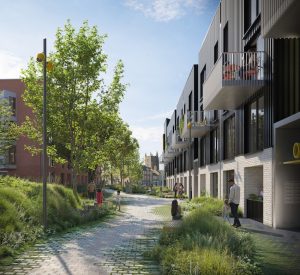Construction and infrastructure workloads fall to lowest levels since financial crisis

Workloads across the West Midlands have slipped to the lowest levels since the financial crisis.
According to the Q2 2020 RICS UK Construction and Infrastructure market survey, anecdotal commentary from respondents suggests that labour shortages, some due to furlough, and difficulties in acquiring materials through the supply pipeline are causing projects to stall.
To gauge the impact of Covid-19 and subsequent lockdowns, the Q2 survey gathered additional data on project delays, productivity and bids coming in below cost.
Eighty per cent of the survey contributors noted that projects have been put hold across the UK with only 23% of contributors believing that projects which are currently on hold are likely to restart imminently. Anecdotal evidence suggests some projects are retendering due to costs.
In Q2 2020, 32% of contributors reported a decline rather than rise (net balance) in headline workloads.
As anecdotal evidence supports that council spending has declined, the West Midlands saw public housing workloads fall to their lowest level since the survey records began and other public works dipped to levels not seen since 2011.
Despite the commitment to infrastructure and housing projects by Government, for the first time since 2011, there was a decline in infrastructure workloads with 9% more contributors reporting a fall (as opposed to a rise) during Q2.
Private housing workloads also tumbled this quarter to their lowest level since Q4 2009.
The RICS market confidence indicator, a composite measure of workloads, employment and profit margins expectation for the coming twelve months slipped lower this quarter. Within this, profit margins are expected to decline in the year ahead with a net balance of -36% of contributors anticipating a fall.
Looking ahead, regional respondents are more optimistic for the year ahead as they anticipate growth in workloads, particularly in public and private housing sectors.
Once again, financial constraints were cited as the most significant impediment to market activity with 70% of contributors taking this view.
However, both labour shortages and material supply chain uncertainty were also cited in a high proportion of the feedback.
Sixty-three per cent of the survey contributors also noted that shortage of materials were posing a significant challenge to output.
Simon Rubinsohn, RICS chief economist, said: “A weak Q2 survey was only to be expected given the impact of the pandemic on the construction sector. Slightly more ominously, forward looking indicators are also still fairly cautious, apart from the infrastructure sector which should benefit from recent government initiatives. However, it is important to recognise that more timely announcements around Permitted Development Rights and the planning system (both came after the survey closed) should in all probability provide a welcome lift to expectations around private housebuilding, notwithstanding the uncertain macro environment.
“Although for the time being, the signs that tenders are not consistently coming in significantly below cost estimates is encouraging, the hit to productivity evident in responses to the survey is more worrisome and if current work patterns need to be sustained for the foreseeable future, there will inevitably be cost implications.”









